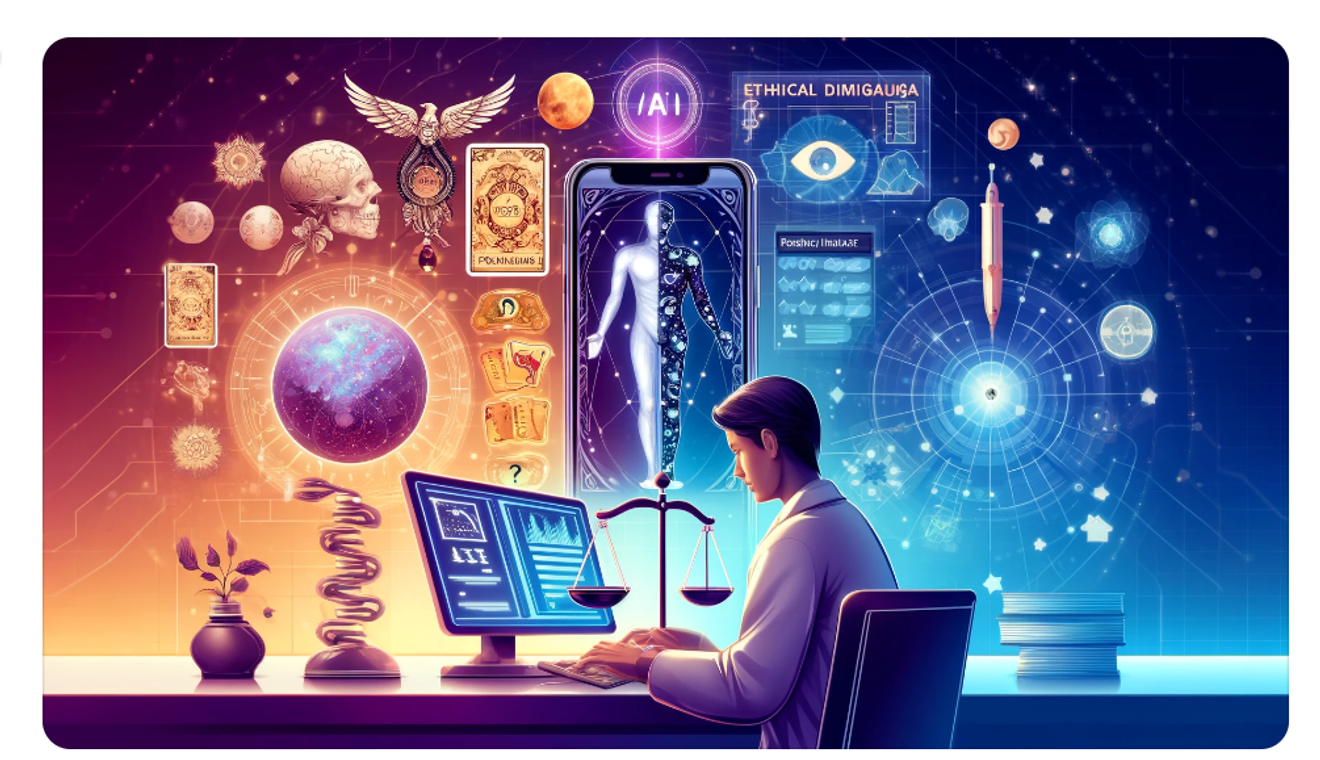Subject
- #Ethical Dilemma
- #AI Technology
- #Privacy
- #Fate Prediction
- #AI Fortune-telling
Created: 2024-06-08
Created: 2024-06-08 20:09

https://bts80000.tistory.com Sujaryeong Cheondo-eopjang So멸 Do량
Artificial intelligence (AI) technology is being applied to various aspects of our lives, and the field of fortune-telling is no exception. In the past, people had to visit fortune-telling cafes or fortune tellers to get their fortunes told, but now they can easily check their fortunes through the internet, phone, and mobile apps. In particular, AI-based fortune-telling apps that have emerged since 2022 utilize massive datasets and deep learning technology to provide more sophisticated and personalized fortune-telling information.
Examples include the 'Jeomsin' app and the 'Posteller' app. The 'Jeomsin' app uses AI deep learning technology to analyze a vast amount of fortune-telling data and provide personalized fortunes, while the 'Posteller' app utilizes its self-developed 'FAS (Fortune Analysis System)' to offer various fortune-telling content such as Sa-ju (Four Pillars of Destiny), Tojeongbigyeol (Korean divination), tarot, zodiac signs, and dream interpretations.
Scientists are also actively engaged in research on destiny prediction using AI models. A joint research team from the Technical University of Denmark and the University of Copenhagen developed an AI model called 'Life2vec'. This model claims to be able to predict an individual's remaining lifespan, personality, and even future actions based on their past data. This research was published in the academic journal 'Nature Computational Science' and attracted considerable attention. However, using AI models for destiny prediction also raises ethical dilemmas.
Can AI truly accurately predict human destiny? If an AI model incorrectly predicts someone's future, it could induce anxiety and stress. Furthermore, the fact that AI models learn and analyze personal information raises concerns about privacy violations.
Therefore, destiny prediction technology utilizing AI models must be handled with caution. Scientists should establish ethical standards and clearly present the accuracy and limitations of AI models. Individuals should also limit themselves to using the AI model's predictions as a reference and take responsibility for their own lives and move forward.
AI technology presents many possibilities for our lives, but it also raises ethical concerns. Destiny prediction technology using AI models is no exception. Scientists and society as a whole must work together to use AI technology properly and guide human lives in a better direction.
Artificial intelligence (AI) technology is increasingly permeating various aspects of our lives, and the domain of fortune-telling is no exception. Historically, people had to visit fortune-telling cafes or consult fortune tellers in person. However, nowadays, it has become much easier to access fortune-telling information through the internet, phone services, and mobile apps. Since 2022, AI-based fortune-telling apps have emerged that leverage massive datasets and deep learning techniques to provide more refined and personalized fortune-telling insights.
Notable examples include the 'Jeomsin' app and the 'Posteller' app. The 'Jeomsin' app utilizes AI deep learning technology to analyze a vast amount of data and deliver personalized fortunes. Similarly, the 'Posteller' app employs its proprietary 'FAS (Fortune Analysis System)' to provide diverse fortune-telling content encompassing Tojeongbigyeol, tarot readings, general fortune-telling, and dream interpretations.
Scientists are also accelerating research into destiny prediction using AI models. A joint research team from the Technical University of Denmark and the University of Copenhagen developed an AI model called 'Life2vec'. This model claims to predict an individual's remaining lifespan, personality traits, and future actions based on past data. This research was published in the academic journal 'Nature Computational Science' and garnered significant attention.
However, the application of AI to destiny prediction presents serious ethical dilemmas. One of the primary concerns is whether AI can truly and accurately predict human destiny. Inaccurate predictions from AI models could potentially induce excessive anxiety and stress in individuals. Moreover, the process involves the analysis of personal information, raising considerable concerns about privacy intrusion.
Given these concerns, it is crucial to approach AI-powered destiny prediction technology with caution. Scientists need to establish ethical guidelines and transparently communicate the accuracy and limitations of such AI models. Furthermore, individuals must take responsibility for their own lives and utilize AI predictions as a reference point rather than absolute guidance.
AI technology holds immense potential to enhance our lives while simultaneously posing unavoidable ethical challenges. Destiny prediction using AI models serves as a prime example of these issues. Collaboration between scientists and society is imperative to ensure the responsible utilization of AI technology, contributing positively to human life.
Ethical Considerations and Future Directions
Accuracy and Limitations
-Rigorous validation is necessary to ensure the accuracy of AI models.
-Clear communication about the limitations of the model is essential.
Personal Information Protection and Data Security
-Robust measures are required to protect personal information.
-Transparency regarding data usage and consent is crucial.
Psychological Impact
-Mechanisms should be in place to support individuals who may experience negative impacts due to AI predictions.
-Ethical guidelines should address the psychological effects of inaccurate predictions.
Regulatory Framework
-Development of comprehensive regulations to manage the use of AI in sensitive areas such as destiny prediction.
-Continuous review and application of such regulations as technology evolves.
In conclusion, while AI has the potential to transform various aspects of life, including destiny prediction, careful ethical considerations and responsible use are necessary to avoid potential harms. Scientists, policymakers, and the public must collaborate to effectively address these issues.
kowsc.org/news/articleView.html?idxno=11954
Comments0